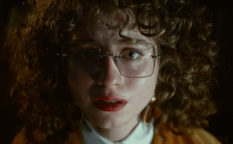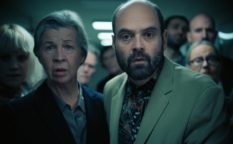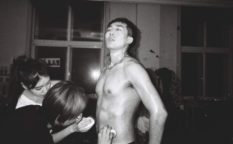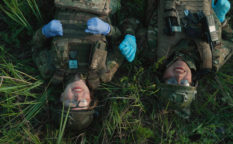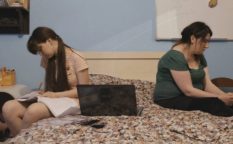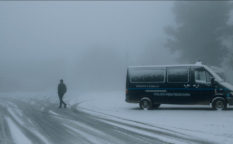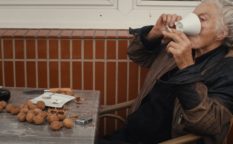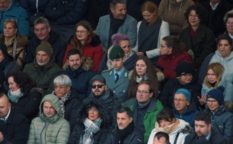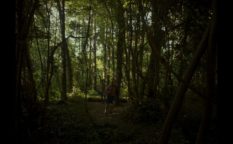Review: Ouvertures (2020)
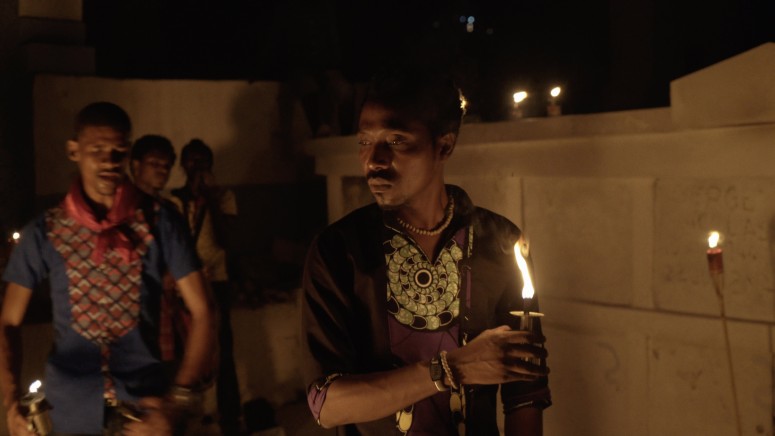
How to forge an identity? Through cultural codes and historical memories, as the Haitian artistic group “The Living and Dead Ensemble” prove in this chimera of improvisational theatre and a documentary. Grounded in the revolutionary spirit of Toussaint Louverture, a Haitian general best-known as the leader of the Haitian Revolution, who was arrested by the French and died in a cell in the freezing Jura mountains in 1803, his legacy bleeds through the texts, performances, discussions, and music performed by the group over the course of the movie.
Originally intended by directors Louis Henderson and Olivier Marboeuf as a documentation of a group of actors adapting and translating the play Monsieur Toussaint by Édouard Glissant, the narrative ultimately branched out and unfolded into an array of ideas and themes, arranged in little interconnected episodes. Henderson and Marboeuf don’t simply recount and reconstruct Toussaint’s life and his lingering in present-day Haitian identity. They actively search for him in the living history and cultural expression of Haiti’s people.
Fueled by improvisations and “staged” conversations of the ensemble, the movie contemplates the cultural richness and history of Haiti. Overshadowed by a (white) Western society writing the rule book on history and identity, the movie pursues to give these people their own voice. Like Toussaint, who revolted against the French, the ensemble dictates the narrative, turning the viewer’s gaze towards the difficult legacy of slavery, a modern-day community with few prospects and the pain of cultural appropriation. Wanting to escape from violent and hostile spaces like their ancestors, these people seek the tools to create a new collective consciousness.
The structure of the film is split into three parts. Setting off in a French archive, a young man is researching the life of Toussaint in the letters and notes written by the revolutionary. A husky voice-over narrates Toussaint’s thoughts as the scene switches to his last whereabouts in the snow-covered mountains of the Jura. The young man explores these silent witnesses of past times. The cell, the woods and the caves nearby. “All men are free”, the voice whispers from an eternal place off-screen. An axiom, interwoven with the fabric of Haitian self-determination. The pride of a country, grounded in being the first black republic in America, but mostly remembered by others for its catastrophes: Military occupation, dictatorships, economic and natural disasters, and the shattering earthquake of 2010.
The story then switches to the bustling streets of the Haitian capital Port-au-Prince, where a young group of actors is preparing their production of the play. The poetic dreamlike sequences of the opening make way for a self-evaluation positioned somewhere between a Greek tragedy and an experimental stage play. A chorus of voices mourning what has been and what is. A collective conveying their acting not only through staged dialogues but expressive or lyrical physicality. Just as the Toussaint of the play is visited on his death bed by the ghosts of Haitian history, the same ghosts arise in the loose arrangement of scenes strung together by the narrative.
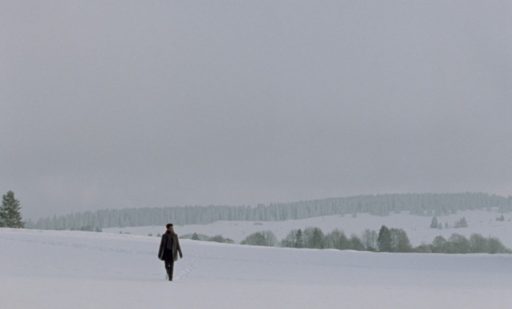
The translation of the play from French into Haitian Creole is the fundament of words, traditions, and codes from which the group resurrects its own Toussaint. A neatly dressed man in a uniform, wandering the streets of the city and encaptivating its liveliness. There are musical performances, in which the actors sing or rap about the accomplishments of their national heroes. Toussaint, or Haitian educator and diplomat Jonathas Granville. In another sequence, the two female members provide a counter perspective to the history being assembled like a puzzle by their contemporaries. Where are the women, they wonder. Even the history of the oppressed eradicates the female counterparts. And after all, they agree, Toussaint would have gotten nowhere without his wife.
This slowly reclaimed identity, risen from the chaos of slavery and abduction across the Atlantic Ocean, gives way to two culturally sensitive approaches. The claim of one of the younger ensemble members to be a citizen of the world strikes a chord with his older colleague. The idea to root oneself in another globally predetermined identity instead of the hard-fought-for cultural signifiers comes like an uneasy blow. The other is a prolonged discussion about the West’s tendency to appropriate cultural traditions. While walking on the beach, the actors discuss white people arriving on the island to try their hand in Vodou. Something at which they will not succeed. “It is in us,” one of them observes. A practice ingrained in their DNA and upbringing, that cannot be harvested at will.
With this collective authorship of Haitian identity and the solace in spirits of the past, Henderson and Marboeuf have an ample sandbox of ideas at their disposal. But this total freedom of expressing themselves through art is also the main setback of the movie. To handle the vast amount of ideas, the movie would have needed a firmer hand at trimming it down to a tighter narrative. At a profoundly felt runtime of 132 minutes, the movie touches upon too many themes and scenarios. This leads to an abundance of approaches at the expense of interesting sequences being glossed over. Identity is a manifold concept, too vast to grasp within a single movie. Less would have been more.
Besides this minor irk, Ouvertures is a look beyond the written word and past down history. A discourse analysis of identity and its implementation. Its revolutionary legacy in regard to abolishing slavery. Like its namesake, the musical opening of dramatic stage work, Ouvertures is also a melodic opening to new beginnings through self-appointed identities.
Ouvertures had its world premiere in the Forum section of the Berlinale Film Festival on February 21st.
Written and directed by: The Living and the Dead Ensemble
Cinematography: Louis Henderson, Diana Vidrascu
Editing: Louis Henderson
Music: João Polido
Sound Design: Gabor Ripli
Sound: André Fevre, Jean Marcaisse Bellegarde, Roudie Rigaud Marcelin
Producer: Olivier Marboeuf
Executive Producer: Sarah Perks
Co-producers: Louis Henderson, Cédric Walter
Co-production: HOME, Manchester








